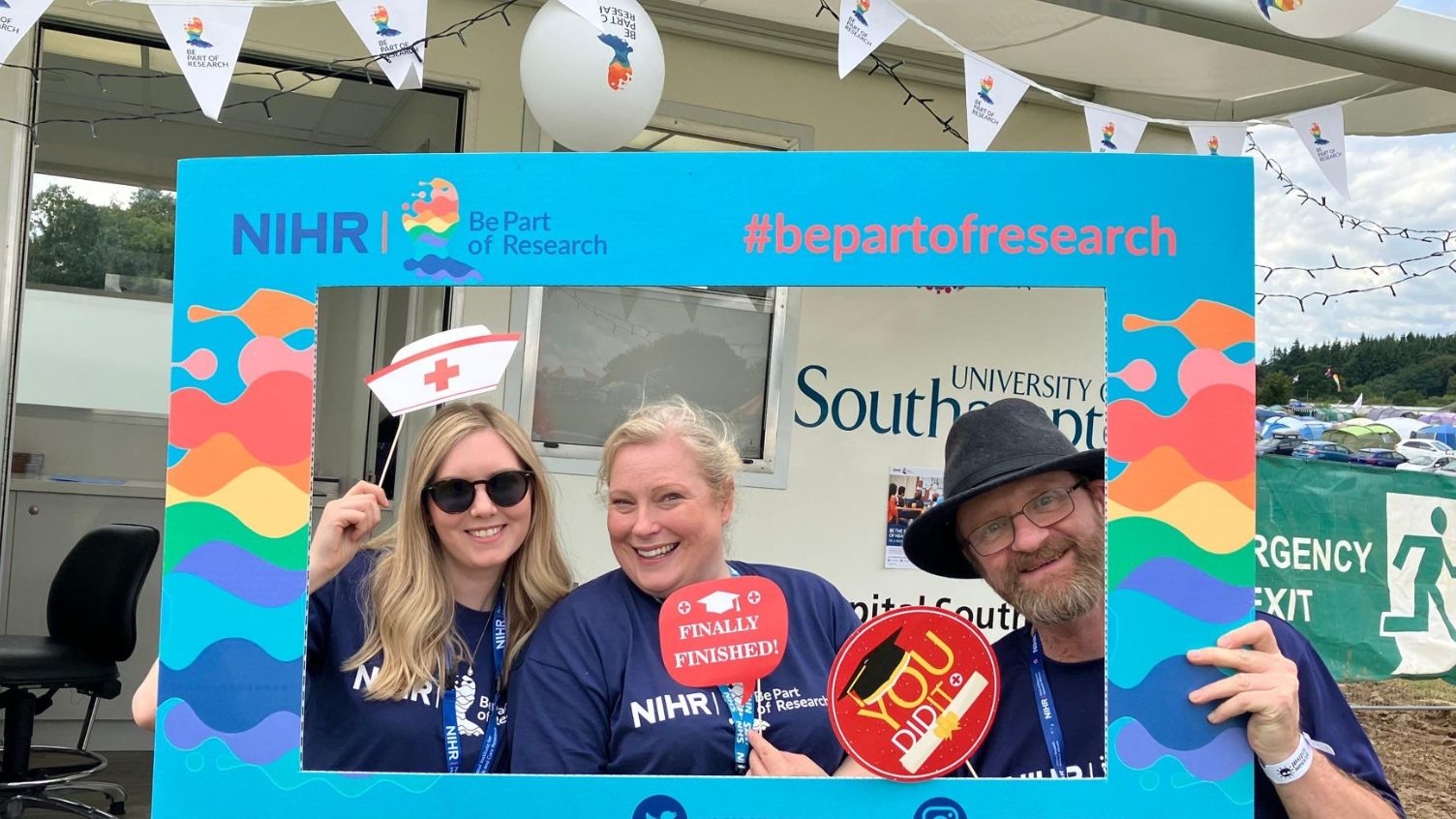The importance of involving people with learning disabilities in research - Ellie’s story
- 22 June 2023
- 4 min read
Ellie Rabbitt is a Learning Disability Expert By Experience Advisor and works with the Kent and Medway NHS and Social Care Partnership Trust (KMPT) Research and Innovation team to help them make research more accessible for people with learning disabilities.
Ellie talks to CRN Kent, Surrey and Sussex about her role and why people with learning disabilities need to be involved in research.
Ellie says: "Last year I was given the opportunity to do some work experience with the KMPT Research and Innovation team. I did some admin work - creating folders and agendas and I helped on a project called which was about perinatal mental health. I helped facilitate training and made the certificates for the people who did the training.
"Last year, KMPT was given some money, through the CRN Kent, Surrey and Sussex under-served funding programme, to encourage more people with learning disabilities to take part in research and to help clinicians talk to people with learning disabilities about research. We did focus groups with people with learning disabilities which I helped facilitate and worked closely with Sussex Partnership NHS Foundation Trust and Kent Community Health NHS Foundation Trust to put together a guidance document to help people with learning disabilities get involved in research. I also sent emails and helped create flyers and leaflets about the information we had gathered.
"As part of International Day of Persons with Disabilities, I worked with the KMPT communications team to put together a video explaining why people with disabilities should get involved in research. This was shared on all of the Trust's social media platforms. This is something I am proud of. The video has been used again recently to promote the great work of the Research and Innovation team at KMPT.
"What I like about my role is that I can be on a project which helps people with learning disabilities. I like that I can give guidance to the team on how we can communicate things better. Working on these projects made me use my disability to help and inspire others who are like me. I loved being part of a group that shared their ideas with me and let me get involved in the conversations.
"It is important for people with learning disabilities to take part in research because they can be part of studies that will improve their lives. People with learning disabilities do not have to be excluded from anything, we just need to find better ways to help them understand why research is important.
"Research can sound scary to some people, especially if they find it hard to understand difficult information. Researchers need to find simple ways to make that information easy to understand and make it less scary. Everyone has different needs. I wrote an email to help researchers and the Research and Innovation team understand how I need them to communicate with me."
Holly Till, Project Lead at KMPT, who works closely with Ellie, said: "Working with Ellie has opened our eyes to how we can communicate better with people in general, not just people with learning disabilities. If we can make complex information easy for Ellie to understand then it makes it accessible for lots of people to understand, not just people with neurodivergent needs, but, for example, for people with a lower reading age.
"By working with Ellie and taking on board how Ellie would like us to communicate with her, we have adapted how we communicate and how we work. This has been very beneficial for the team. We've found that if we ask Ellie something verbally, she finds it difficult to understand and respond. It is easier for Ellie if we send her something in writing and we have to consider when we talk about research with people with learning disabilities. Also, tasks like producing leaflets may take Ellie longer to do but it is worth the time as the end product is much more valuable as it is written by someone with a lived experience of a learning disability.
"Ellie is a great ambassador for research and our team. People may find it less scary to talk to Ellie about research than a professional. We would like to develop Ellie and continue to employ her if we find additional funding. We've found that employing people gives value to their role and is something we would like to replicate for other members of our under-served communities.
"The next step for Ellie would be to participate in a study, but as we know the documentation and consent process is overwhelming. We have aspirations for Ellie to work with our clinical research practitioners to see how we can make our consent process more accessible.
"Having people with lived experience of areas our research focuses on will enrich the research and make the results more valid and valuable and Ellie is a great role model for all of us to learn from."


